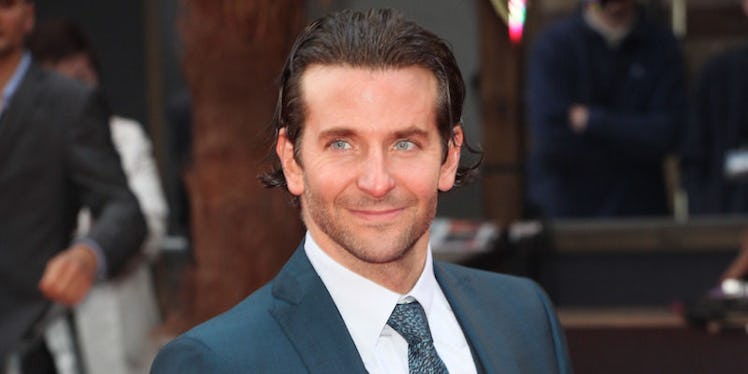
The Bradley Cooper Effect: Why Men Should Speak Up About Their Salaries
The gender wage gap is well documented in modern media.
We all know the statistic of 79 cents to the dollar, in which women earn less than four-fifths of their male counterparts in the same jobs.
If current rates continue, the gender wage gap won’t close for another 70 years, and even that is a pretty optimistic estimate.
TBH, I’ll probably be dead by then.
But the silence surrounding the gap is slowly being broken.
After Jennifer Lawrence spoke out against her incredibly underpayment in comparison to her "American Hustle" costars, men like Bradley Cooper have begun pushing for transparency by revealing their own salaries, and making these rates public.
It’s a shocking difference, and it should make everyone mad -- men and women alike.
I’ve only ever held one paying job; now, as a college senior, I’m on the hunt for other opportunities.
But in my single foray into the world of employment, at a job which supposedly paid minimum wage, I still felt the sting of the wage gap.
After seeing a “Help Wanted” sign in the window of one of my favorite restaurants, I applied and quickly got a job at the tender age of 18.
I felt ill-prepared.
Since I never had a job in high school, I thought I was starting out too late. Maybe I wouldn’t have a natural gift for balancing hot plates on the skin of my inner arms.
Luckily, these worries weren’t something I had to deal with at first.
I started off as a “carry-out employee,” which essentially meant I was one of those people who stand at the window and hand you your take-out orders.
It was a height of glamour that I still haven’t seen since.
I was paid minimum wage, which then was $8 per hour in my state.
After a few weeks of work, another new employee was brought on.
He was a male, and was a few years older than me, but no more experienced.
In a casual discussion during break one day, he brought up our wages.
“$8.50 an hour is pretty brutal, huh?”
He asked, nudging my shoulder and laughing.
We’d just finished a few hours of violently scraping at hardened ice in the freezer and we were both feeling the effects. Minimum wage seemed exceedingly unfair.
I paused, and I’m sure I looked incredibly confused. “You make $8.50 an hour?”
He nodded. “Yeah, of course. That’s the rate for carry-out here.”
Later that night I examined one of my pay-stubs just to make sure I hadn’t read my own wage incorrectly.
No, right there on the page it stated, “Rate of pay: $8.00/hour.”
It was only a difference of pocket change; losing out on a few spare quarters wouldn’t amount to much on the hour.
But over the course of an average night shift, I calculated that I made a full $4 less than someone doing my same job.
Over a week, that was nearly 20 dollars.
I could buy a full outfit at Forever 21 for that. or a whole Chicago-style deep dish pizza.
Suddenly it didn’t seem so much like pocket change.
Eventually I graduated to full-blown server, and my wage plummeted to $2.71/hour, but that’s a battle for another day.
For my tenure as a carry-out employee — and eventually a trainer for other new hires — my wages never increased.
I didn’t question it, nor did I allow myself to consider the possibility that my male counterpart was intentionally being paid more than me.
Maybe they just made a clerical mistake, I reasoned.
My employers were always incredibly supportive and kind to me, so I didn’t want to think poorly of them.
But maybe it’s time I start thinking poorly of them.
For a part-time college employee, losing out on a portion of pay that could be spent on Chinese take-out or cheap beers at dive bars isn’t the end of the world.
But for women trying to earn a living off 79 percent pay for 100 percent work and effort, this can spell a devastating difference between living comfortably and just barely making it by.
For women of color the gap is even wider, with rates as low as 54 cents to the white male dollar.
Obviously I have no reason to support the gender wage gap.
But we should all take a hint from people like Bradley Cooper, and break our silence when possible.
When I learned of those two quarters slipping between my fingers on an hourly basis, I should have spoken up.
By keeping my mouth shut, I cheated myself and other female coworkers out of money we had rightfully earned.
Women and men on either side of the gap — myself included — need to take a page from Cooper’s book and start speaking out.
We can’t wait another 70 years for equal pay.
Like I said, we’ll probably all be dead by then.
And I want to get paid what I earn.